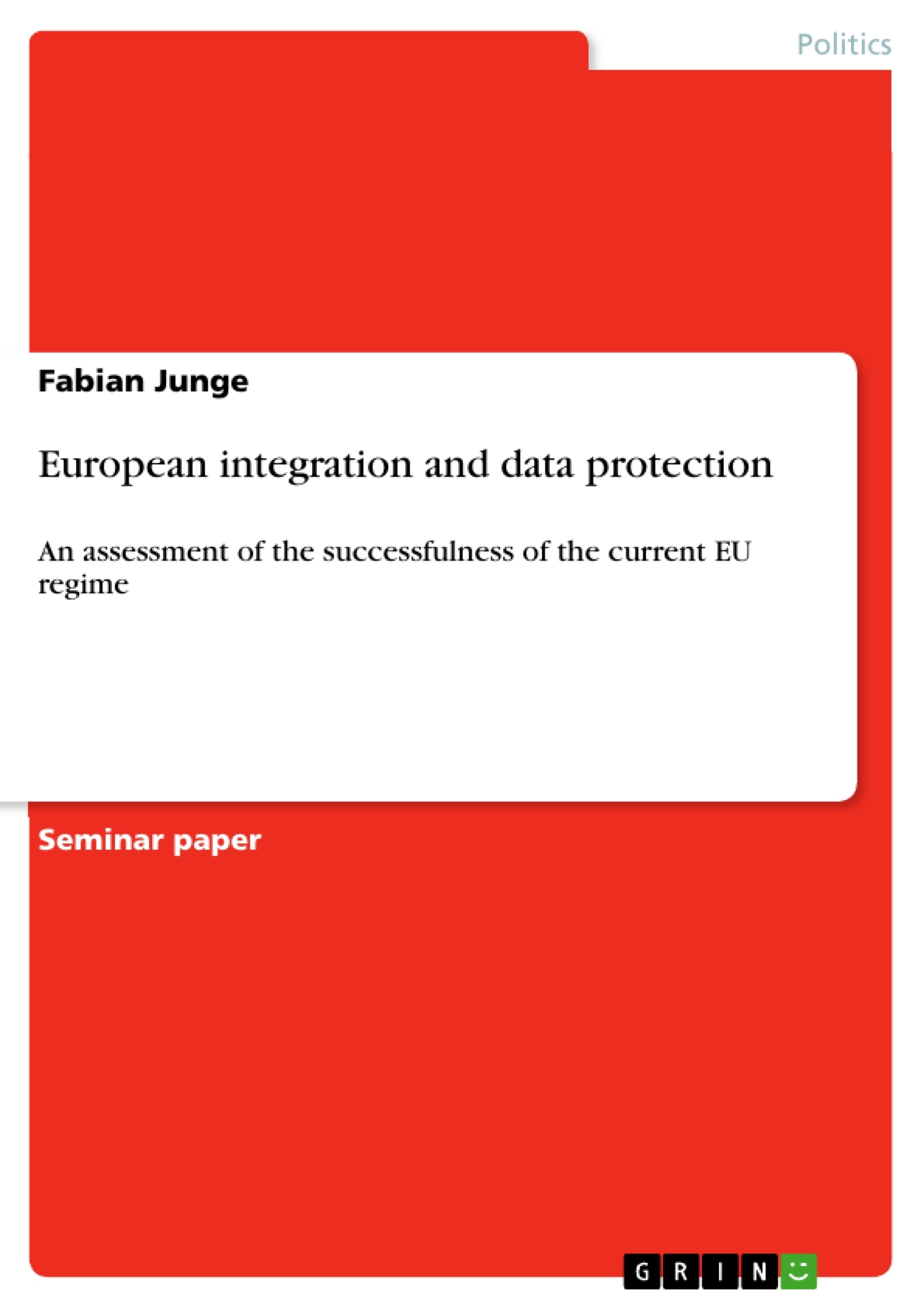The paper at hand focuses on this current EU framework on data protection, mainly on the Data Protection Directive, and whether it can be considered as being successful. In order to comply with the course methodology the paper will first set out the rationale for the respective regime and how it has been realized in the EU. Then, the focus will rest on the successfulness of the current regime based on various criteria set out below. To give credit to future developments the European Commission‟s ambition to reform the current EU data protection regime will be referred to.
Communication in today‟s society has largely been influenced by the technical developments of the last decades. Most processes in our daily life are, at least partly, influenced or governed by the Internet or mobile telephony. This central role of electronic communication provides a multitude of
advantages, but also entails dangers which often cannot be overseen or which are not even known to the majority of the public. Besides the potential misuse of personal data by undertakings there is also the increasing risk of an unjustified analysis of said data by law enforcement agencies and
intelligence services. It is well established that over the past years both the European and the national legislators are
facing the challenge to balance both the public interest of security and the undertakings‟ interest to capitalize private data against the protection of privacy and personal data.
Evidence suggests that there has been a change in the perception of the significance of privacy in the population leading to more and more citizens being concerned with the protection of their personal data. According to a Eurobarometer conducted in 2008 around 64 percent of European citizens are worried about the way in which companies and organizations dealt with their personal data. Therefore, it is appealing to analyze if a balance has been realized with respect to data protection in the EU.
Inhaltsverzeichnis (Table of Contents)
- A. Introduction
- B. The current EU regime on data protection
- I. The rationale behind the Data Protection Directive.
- II. Realization in the EU.
- 1. General observations
- 2. Key provisions of the Data Protection Directive..
- 3. Cross-border data flows ......
- III. Development after the adoption of the Data Protection Directive.
- C. The successfulness of the current regime
- I. Impact on legislation..
- II. Real convergence after implementation?.
- III. Suitability for today's technological challenges ......
- IV. Fostering global data protection ........
- D. Future developments.........
- E. Conclusion
Zielsetzung und Themenschwerpunkte (Objectives and Key Themes)
This paper aims to assess the success of the current European Union (EU) data protection regime, analyzing its impact, effectiveness, and suitability for contemporary challenges. The paper examines the rationale behind the Data Protection Directive, its realization in the EU, and subsequent developments.
- The rationale and objectives of the EU Data Protection Directive
- The implementation and impact of the Directive on national legislation and practices
- The effectiveness of the regime in addressing emerging technological challenges
- The role of the EU regime in fostering global data protection
- The future directions and potential developments of EU data protection
Zusammenfassung der Kapitel (Chapter Summaries)
- A. Introduction: This chapter provides a brief introduction to the topic of data protection and its significance within the context of European integration.
- B. The current EU regime on data protection: This chapter explores the current EU data protection regime, focusing on the rationale behind the Data Protection Directive, its implementation across the EU, and key provisions of the Directive. It also discusses cross-border data flows and developments after the adoption of the Directive.
- C. The successfulness of the current regime: This chapter assesses the success of the current EU data protection regime, examining its impact on legislation, convergence after implementation, suitability for modern technological challenges, and role in fostering global data protection.
- D. Future developments: This chapter discusses future developments in EU data protection, considering potential changes and challenges.
Schlüsselwörter (Keywords)
The primary keywords and focus topics of this paper include: EU data protection, Data Protection Directive, European integration, privacy, technology, cross-border data flows, global data protection, legal convergence, and future developments.
Frequently Asked Questions
What is the main focus of the EU Data Protection Directive?
The directive aims to balance the free flow of personal data within the EU with the protection of individuals' fundamental rights to privacy and data protection.
Has the EU data protection regime been successful?
Success is measured by its impact on national legislation, legal convergence, and its suitability for modern technological challenges, which the paper analyzes in detail.
How does the EU handle cross-border data flows?
The regime sets specific rules for transferring data to non-EU countries to ensure that the level of protection guaranteed within the EU is not undermined.
What are the modern challenges for EU data protection?
Challenges include rapid technical developments like mobile telephony, the internet, and the potential misuse of data by law enforcement or private companies.
What future developments are expected in EU data protection?
The paper discusses reform ambitions by the European Commission to update the framework for better suitability in today's digital society.
- Citar trabajo
- Fabian Junge (Autor), 2015, European integration and data protection, Múnich, GRIN Verlag, https://www.grin.com/document/335067



